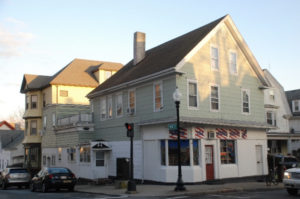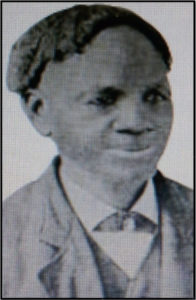


William Henry Johnson House
46 Wing Street, New Bedford, MA
One of the first African American lawyers in Massachusetts, William Henry Johnson, lived at 46 Wing Street. He emancipated himself in Richmond, Virginia by escaping slavery on a flour schooner bound for New York. Johnson came to New Bedford between 1831 and 1834 and did unskilled work such as lighting street lamps, hawking newspapers, selling soap, cleaning paint, or sawing wood. A job as a janitor in a New Bedford law office sparked his interest in the law. He studied with a local attorney until he was ready to open his own practice. He became known as “Squire” Johnson. Johnson was aggressively opposed to slavery, and frequently represented the city at local, state, and national antislavery meetings.
Text modified from the original produced for the New Bedford Historical Society, written by historian Kathryn Grover.
CREDITS
The Black Spaces Matter project is collaboration between UMass Dartmouth College of Visual and Performing Arts students and faculty, local New Bedford experts, and the New Bedford Historical Society.
Black Spaces Matter was exhibited from November 19, 2017 — January 29, 2018 at the Boston Architectural College’s McCormack Gallery, 320 Newbury St. Boston, MA, and from November 8, 2018 — January 30, 2019 at UMass Dartmouth’s University Gallery, 715 Purchase St. New Bedford, MA 02740.
SUPPORT
Black Spaces Matter is supported by New Bedford Historical Society, Creative Economy Fund from the Office of the UMass President, UMass Dartmouth Provost Office, Perkins + Will Associates, Rotch–Jones–Duff House and Garden Museum, Spinner Publications, New Bedford Whaling National Historical Park.
PARTICIPANTS
Consultant: Lee Blake | Lead curator: Pamela Karimi | Architectural renderings, model production, and maps: Pedram Karimi and students in Architecture and Sustainability class | Film, animation, and digital curation: Don Burton | Artistic representations: Michael Swartz | Consultants for the Documentaries: Janine da Silva, Ann Marie Lopes | Advertisement and graphic design: Ziddi Msangi, Racsa Soun, Vasco Pedro and students in Community Engagement Design studio | Digital stations: Michael Swartz, Don Burton, Ben Guan-Kennedy, and Merri Cyr | Production Manager: Jennifer McGrory | Curatorial assistance: CVPA students, Cynthia Raposa, Mark Walker, and gallery director, Viera Levitt.
Events

Community Volunteer Day
Join us in our last stages of creating a community-made public art piece celebrating Pride in SouthCoast Massachusetts. We’re calling on community members to help us bring Being Seen to life! Whether you’re into painting, crafting, organizing, or just want to lend a hand, there’s something for everyone. ✂️ Materials Provided – Paint, fabric, collage supplies & more (while they
